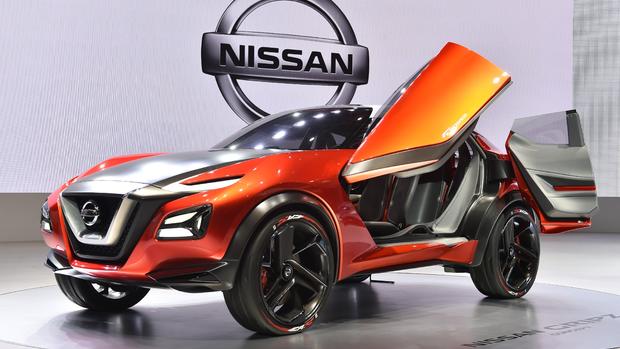Self-driving car safety: The early word is mixed
Self-driving cars have been all the rage among high-tech companies. Google (GOOG) has one. Rumors have it that Apple (AAPL) is working on one, as well. Mercedes-Benz has shown one off.
According to researchers Brandon Schoettle and Michael Sivak from the University of Michigan Transportation Research Institute, consumers are showing some strong interest in self-driving cars. About 40.6 percent of drivers surveyed were open to cars that had partial self-driving features, the organization notes in a July report. Another 15.6 percent wanted fully self-driving cars, while 43.8 percent didn't want any degree of self-driving in their vehicles.
But given the technology's still early-stage development, is there any data to show how safe self-driving cars are when running in autonomous mode? The Transportation Research Institute provides some answers. However, the results are unlikely to make anyone among that 43.8 percent feel any better.
According to the analysis, these vehicles were more than twice as likely to get into accidents. The accidents also saw more than three times the number of total injuries per million vehicle miles traveled and somewhat elevated numbers of injuries per crash. But here's one big caveat: The self-driving vehicles weren't at fault in any of the crashes they were involved in.
Researchers collected available data from California, which is one of a few states that licenses self-driving cars for testing on public roads that also mandates full reporting of any crashes. The study also included more extensive self-reported crash data from Google. The accident rates were then compared to the safety record of all vehicles nationally in 2013, adjusted for underreporting of crashes that didn't involve a fatality.
The vehicles were run by Google, Delphi (DLPH, a major automotive manufacturer) and Audi (VLKAY). Both Delphi and Audi used Audi vehicles. Google used cars from Lexus (TM).
Conventional vehicles were involved in 4.1 crashes per million vehicle miles traveled, with 1.02 injuries, compared to 9.1 crashes and 3.29 injuries for self-driving cars. The number of injuries per crash for conventional vehicles was 0.25, while self-driving cars had 0.36.
And yet, none of the self-driving cars were at fault. Crashes usually happened when the cars were stopped or moving slowly in traffic, and the most frequent type of crash was being rear-ended.
Self-driving automobiles may be having more problems than conventional vehicles for a number of reasons. The technology is still new, and companies are trying to learn exactly how they need to design and program systems to deal with the real world. Human drivers also may exhibit behaviors that go beyond obvious attempts to detect and avoid hazards that researchers have tried to address. And it could be that human drivers, spying a vehicle with no one behind the wheel, get distracted and don't stop their cars in time.
The researchers noted some other caveats. The number of recorded miles for self-driving cars is still very low compared to conventional autos. Also, self-driving cars have been operated under limited and less-demanding conditions than is generally true for conventional vehicles, so they've generally been in more forgiving situations than the range drivers of conventional cars find themselves in. In addition, because of the low absolute number of miles and accidents to date (11), it's hard to say statistically that accident rates for self-driving cars won't end up being lower.
No word yet on whether technology is coming that can swear and gesture at other cars after being hit.
